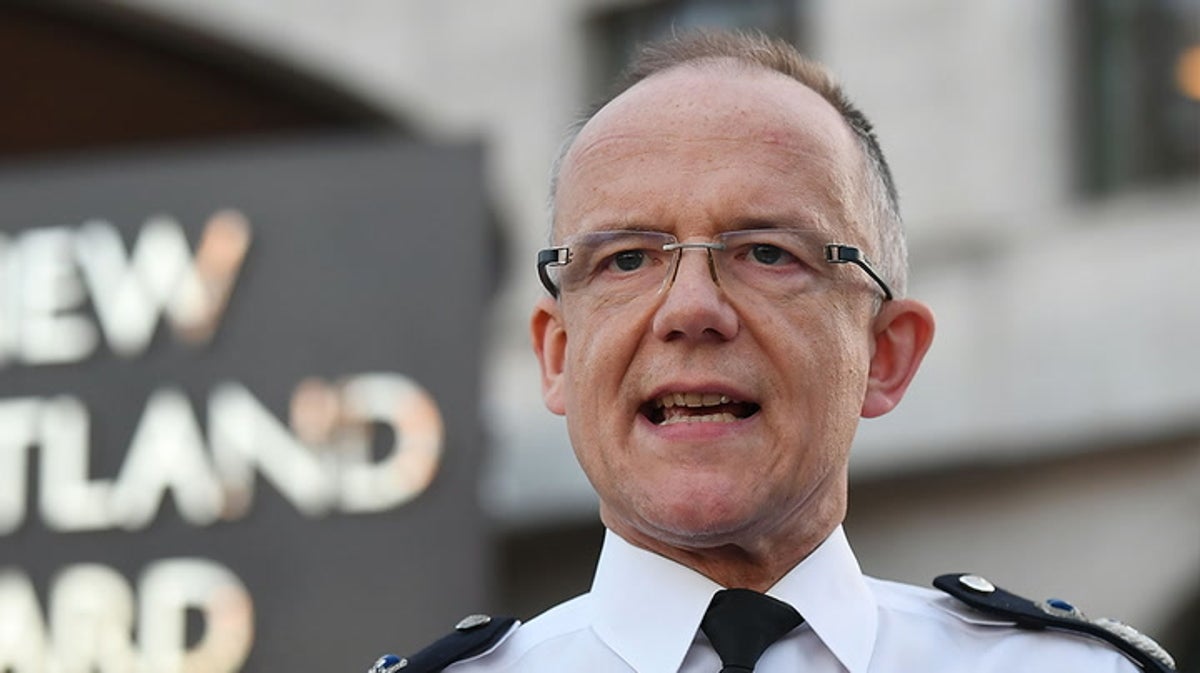
Less than half the public trust the police in the wake of a series of scandals, a new poll shows.
Just 49 per cent said they had trust in policing, a figure that fell to 46 per cent for women, the exclusive Savanta survey for The Independent found.
The statistics can be revealed just a day after it emerged that convicted sex offenders are serving in the UK’s largest force. The Metropolitan Police has also switched officers away from tackling terrorism and organised crime to work on cleaning up its act.
A national outcry over policing erupted in the wake of the murder of Sarah Everard by Wayne Couzens in 2021.
But a series of damaging revelations about the Met Police since then – including ex-PC David Carrick being unmasked as a serial abuser and rapist and the force being branded institutionally racist, homophobic and misogynist in a major review – has plunged British policing into crisis.
When asked whether they trust police in general in the UK, 49 per cent said they did, while 47 per cent said they distrusted the police.
Just 51 per cent said that if they had been a victim of crime they would trust the police to take their case seriously. Another 42 per cent said they did not trust that would happen, while the rest did not know.
The new poll found the public had only slightly higher levels of trust in their local police force. Overall, 56 per cent of people, and 57 per cent of women, said they trusted their nearest bobbies.
Shadow policing minister Sarah Jones accused the government of being “asleep at the wheel” on the issue.
She said: “The principle of policing by consent is precious and should be protected. But this hands-off Home Office has been asleep at the wheel when it comes to police standards, while distrust in the police continues to grow.”
Liberal Democrat home affairs spokesperson Alistair Carmichael said: “Scandals have eroded the public trust in the police that is so crucial for officers to do their jobs and keep us safe. From the shocking examples of appalling violence against women to the fact that the vast majority of burglaries go unsolved, it's not surprising that people don't have confidence in the police.”
He said the government had been “too mired in their own sleaze and chaos to get to grips with the huge issues we face”.
On Tuesday it emerged that 161 Metropolitan Police officers – roughly one in 200 – have criminal convictions.
Met commissioner Sir Mark Rowley has called for powers to give him the final say over who serves in his force, saying it was “nonsensical” he does not have the power to dismiss officers.
“If you expect me to sort out the cultural issues in the Met and get rid of the people, then give me the power to do it,” he said.
The home secretary Suella Braverman is currently reviewing the dismissals process.
But Susan Hall, the chair of the London Assembly’s police and crime committee, said the figures showed the forces’ vetting procedure was not “fit for purpose”.
A Home Office spokesperson said: “The reputation of British policing has been damaged by recent high-profile events, and the public’s trust in our police has been understandably shaken. The home secretary has already taken immediate action, asking police chiefs to root out any current officers unfit to serve and bringing forward the inquiry to address systemic issues in police forces.
“We are also providing police with the resources they need to respond to the evolving profile of crime and ensure the public can feel safe. We are providing forces with record levels of funding and ensuring more police are on our streets thanks to our commitment to recruit an additional 20,000 officers.”
Chris Hopkins from Savanta said: “The public’s trust in the police in general will undoubtedly have fallen due to multiple high-profile missteps by the force in recent months and years. Public trust in institutions is quick to fall and hard to rebuild, so it could be a long time before it rises again, and will rely on the public seeing evidence of the changes being spoken about actually being made - something that can be hard for institutions to prove.”
The Savanta poll was carried out between 24 and 26 March.







